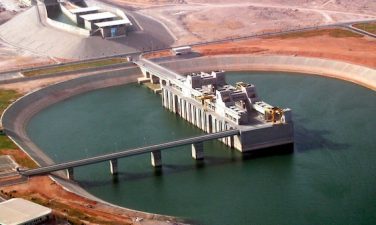 It’s real-life Hunger Games, and the Middle East is among the busiest land-grabbers.
It’s real-life Hunger Games, and the Middle East is among the busiest land-grabbers.
In the last decade, nearly half a billion acres of land – eight times the area of Great Britain – were sold or leased in transnational deals, according to a 2012 report published by the Land Matrix project, a coalition of research centers and civil societies.
It’s a real-life Hunger Games, with investors targeting underdeveloped countries that are poorly integrated into the world economy, have a high incidence of poverty and hunger, and weak land institutions. Is this smart business or inequitable resource grab? And who’s looking out for the environment?
The report was produced by an international partnership involving five major European research centers and 40 international civil society and research groups. It reveals startling facts about the shadowy world of foreign-land-buying, which involves governments, investors and speculators seeking large tracts of fertile land in attempt to hedge looming shortages in property suitable for farming, ranching or energy production.
This is capitalism, baby: wealthy, food-importing countries and emerging economies are both shopping for arable land in poorer countries to buy at discount prices. According to the Land Matrix project, investors have acquired almost 5% of Africa’s agricultural land since 2000. Asia and Latin America are also attractive targets.
And the Middle East is among the busiest shoppers.
- Saudi Arabia purchased about 5.5 million acres, the largest being 675,000 acres in the Philippines by Eastern Renewable Fuels Corporation for agriculture.
- The United Arab Emirates bought about 5.6 million acres; its main score was 4.2 million acres in Sudan by Al Ain National Wildlife for tourism.
- Israel acquired about 5.9 million acres, 4.9 million of them in the Democratic Republic of Congo by an unknown investor for agriculture.
This interactive graph shows how much land is being acquired by investors from countries (listed on the left) in target countries (listed on the right). Click on any nation and see its threads in the global pattern.
Governments eager for foreign investment often advertise immense tracts of “vacant” land which the report has identified as being occupied and locally farmed before investors arrived. Competition between powerful foreign backers and local farming communities seems “inevitable”, it said.
Reports of land in the world’s poorest countries being exploited by foreign investment have been rampant in recent years, but lack of reliable data has made it difficult to define the extent and nature of the land rush. The Land Matrix project is the first comprehensive list of international land deals, its publicly available database draws upon multiple sources including media reports, academic research and field-based investigations to add detail to this quiet global phenomenon.
The report found little evidence of job creation or other benefits to local communities among the hundreds of largely export-oriented projects. In some cases, investors secured hundreds of thousands of acres of prime farmland at little to no cost. One deal in South Sudan reportedly granted a Norwegian investor a 99-year lease for 179,000 hectares at an annual cost of just $0.07 per hectare.
To date, few large-scale projects have been established on the millions of acres acquired for agriculture. The report estimates that less than 30% of documented deals are in production, suggesting that some deals are likely to be purely speculative, or that investors have underestimated challenges associated with their projects.
The International Land Coalition, the NGO Global Witness, and the US-based Oakland Institute have denounced the “secretive culture” around large-scale land deals, and demanded governments and businesses disclose contracts and detailed information about potential risks and impacts of land-based investments.
“Far too many people are being kept in the dark about massive land deals that could destroy their homes and livelihoods,” says Megan MacInnes, senior land campaigner at Global Witness in a statement on their website. “Companies should have to prove they are doing no harm, rather than communities with little information or power having to prove that a land deal is negatively affecting them.” This could be another tragedy of the commons, on an epic scale.
Image of tea harvest from Shutterstock



